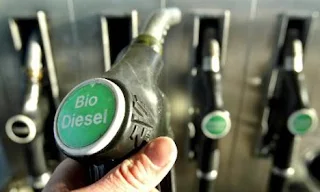The Union cabinet has approved the National Policy on Biofuels 2018. The policy was drafted in 2009 by the Ministry of New and Renewable Energy.


- It aims at promoting the use of biofuels in India.
- This new policy would help the farmers to dispose of their surplus stock in an economic manner and would also reduce India’s oil-import dependence.
- It expands the scope of raw material for ethanol production as it allows the use of materials unfit for human consumption.
- It categorises biofuels into different groups such as –
- First Generation (1G)
- Second Generation (2G)
- Third Generation (3G)
- It encourages setting up of supply chain mechanisms for biodiesel production from non-edible oilseeds.
- The policy allows use of surplus food grains for production of ethanol for blending with petrol with approval of National Biofuel Coordination Committee. This would enable the farmers to get an appropriate price for their produce.
- It has indicated viability gap funding scheme for 2G ethanol bio refineries of Rs.5000 crore in six years.
- Through this new policy, the Govt. envisions a reduction in import dependency, cleaner environment through reduction of reducing crop burning and conversion of agricultural residues/wastes to biofuels, reduction in greenhouse gas emissions and other health benefits.

